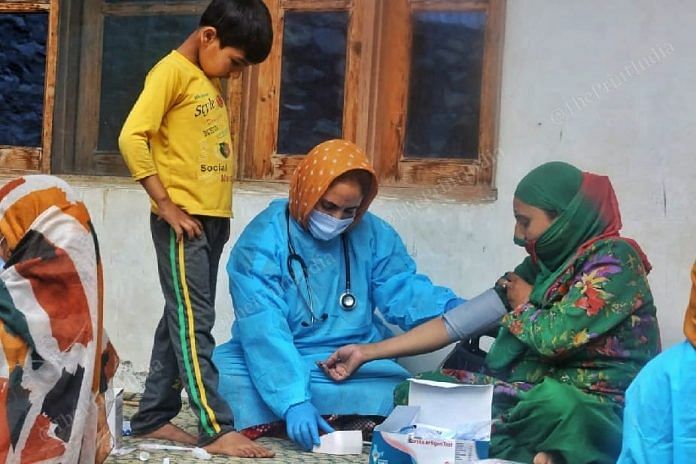New Delhi: The number of adults living with hypertension worldwide has doubled over the last 30 years, with over 30 per cent of Indians suffering from high blood pressure, reported a study published in The Lancet journal Wednesday.
The study is an international collaboration, including, among others, scientists from Imperial College London and the Indian Council of Medical Research (ICMR).
According to the research team, the number of people suffering from hypertension has increased to 626 million women and 652 million men in 2019, from an estimated 331 million women and 317 million men in 1990.
For the study, the researchers analysed blood pressure measurements over three decades from more than 100 million people in 184 countries.
Most of this increase was in low- and middle-income countries, the study notes. Nearly half of the people studied — 41 per cent women and 51 per cent men — in 2019 were unaware of their condition, the study says. As many as 53 per cent of the women and 62 per cent of the men with the condition were not treated, it adds.
Costa Rica, Kazakhstan, South Africa, Brazil, Turkey, and Iran were among the countries that have seen significant improvements in treatment and control rates over the past three decades, the researchers said.
This, according to the researchers, shows that the expansion of universal health coverage and strengthening primary care have been instrumental in improving hypertension care and reducing the severity of the condition.
Canada and Peru had the lowest proportion of people with hypertension in 2019 at around 1 in 4. Taiwan, South Korea, Japan, and some countries in western Europe — including Switzerland, Spain, and the UK — were found to have the lowest hypertension rates among women, while Eritrea, Bangladesh, Ethiopia, and the Solomon Islands had the lowest rates among men (less than 25 per cent).
At the other extreme, more than half of the women studied in Paraguay and Tuvalu in 2019 were found to have hypertension. Among men, this was the case in Argentina, Paraguay, Tajikistan and several countries in central and eastern Europe (i.e. Hungary, Poland, Lithuania, Romania, Belarus, and Croatia).
Also read: India likely made up more than a third of global infant deaths in Covid slowdown
High blood pressure leading cause of death
High blood pressure, one of the leading risk factors for stroke, heart disease, and kidney disease, is linked to more than 8.5 million deaths worldwide each year, the study said.
Past studies have shown that lowering blood pressure can reduce the number of strokes by 35-40 per cent, heart attacks by 20-25 per cent, and heart failure by around 50 per cent.
“Despite medical and pharmacological advances over decades, global progress in hypertension management has been slow, and the vast majority of people with hypertension remain untreated, with large disadvantages in low- and middle-income countries,” Majid Ezzati, a professor at Imperial College London and the senior author of the study, said in a statement accompanying the study.
However, he added that their “analysis has revealed good practice in diagnosing and treating hypertension not just in high-income countries but also in middle-income countries”.
The researchers noted that some countries, especially in Oceania and sub-Saharan Africa, lacked data on hypertension prevalence, which may affect the overall global figures.
“Low detection and treatment rates that persist in the world’s poorest nations, coupled with the rising number of people who have hypertension, will shift an increasing share of the burden of vascular and kidney diseases to sub-Saharan Africa, Oceania, and South Asia,” Leanne Riley from WHO, Switzerland, said in the statement.
“Improving the capacity of these countries to detect and treat hypertension as part of primary health care and universal health coverage must be accelerated,” Riley said.
(Edited by Paramita Ghosh)
Also read: Why 25-50% of vaccine side-effects are ‘anxiety-related and not a result of Covid jab’



